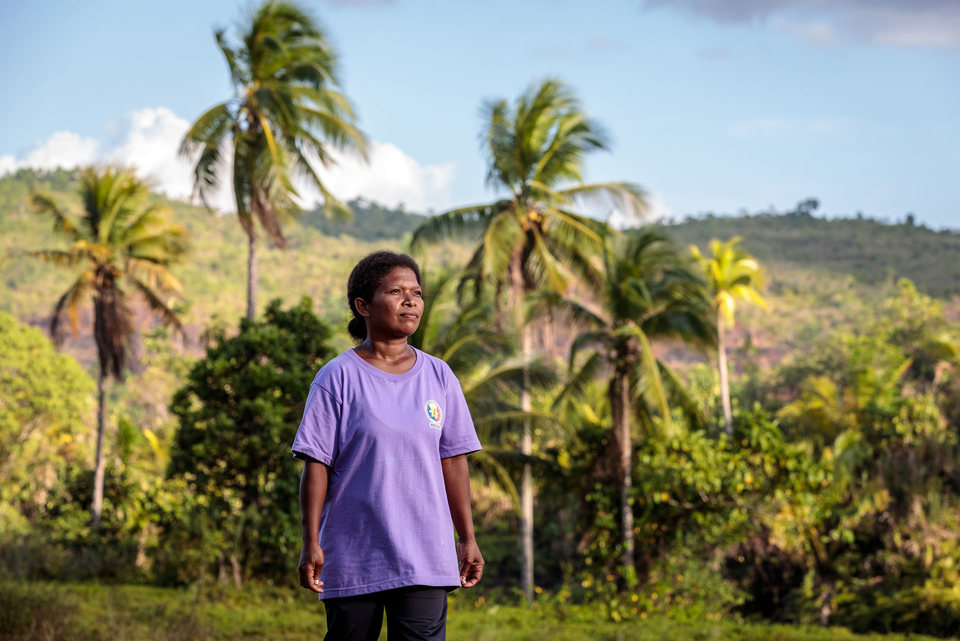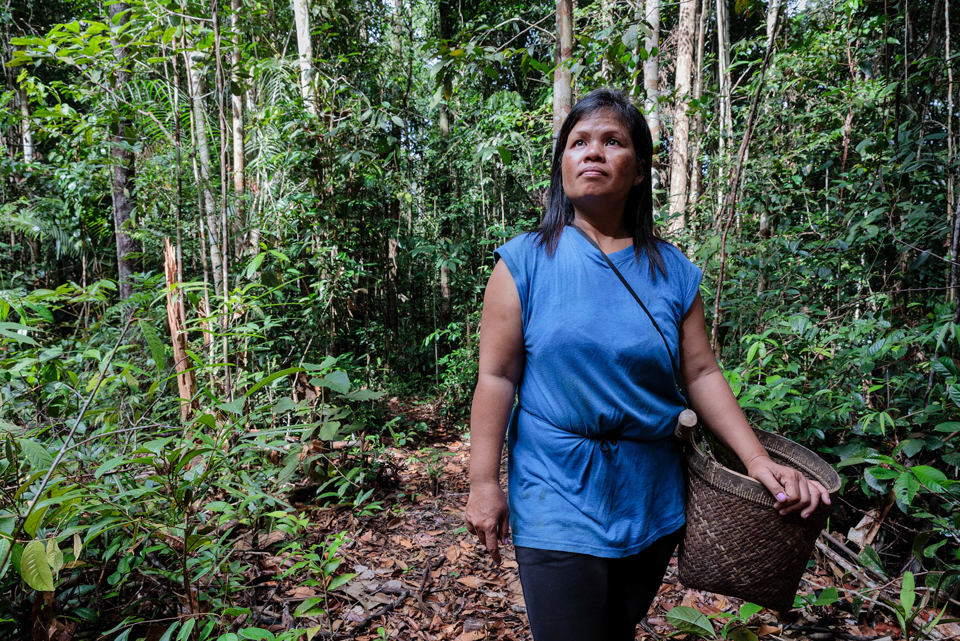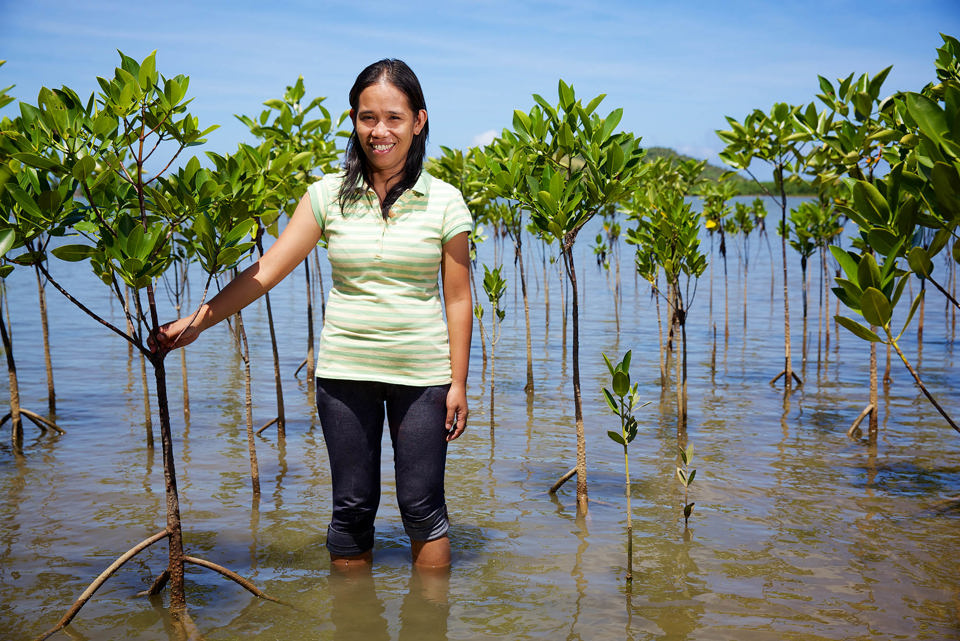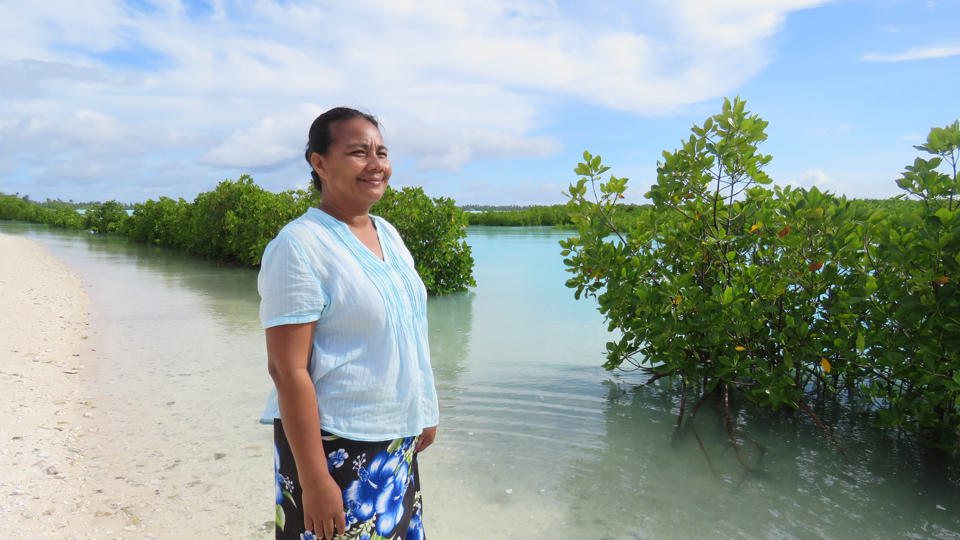Help build resilience in climate-vulnerable communities
Act now to help provide life-changing training, emergency supplies and support to communities impacted by climate change.

Shirley standing on the island of Camarines Norte in the Philippines. Photo credit: Richard Wainwright/Caritas Australia.

Shirley walking through her Manide community in the Philippines. Photo credit: Richard Wainwright/Caritas Australia.
Those who have done the least to contribute are hit the hardest
The effects of climate change are set to hit people living in poverty, those who have done the least to contribute to its causes, the hardest. Your donation can help communities to develop resilience against natural disasters by providing education around disaster risk reduction and environmental conservation.
Our changing climate has been linked to:
- an increase in the severity and frequency of droughts and famines around the world.
- greater water shortages and food insecurity.
- poor harvests and people's inability to sustain their livelihoods through agriculture.
Your generosity can help to provide improved access to water, water management systems and sustainable farming training to build on their strengths and develop sustainable, environmentally-friendly jobs for remote and marginalised people.
Show your supportYour support can help to
improve water management systems to reduce water scarcity
respond quickly to emergencies caused by natural disasters
increase livelihood opportunities and loans to improve local income security
provide training and education about disaster risk reduction, ecology, and the environment
raise awareness around the effects of climate change and how to live more sustainably
provide sustainable farming training to increase food security
Your help is urgently needed. Donate today to help climate-vulnerable communities to build resilience, boost their food and water security, and develop sustainable livelihoods.
Donate nowIndonesian habitats are declining - hear from Tati
Tati, a farmer living in a remote village deep within a rainforest in Indonesia, was struggling to keep up with the rising cost of living and her income was threatened by environmental degradation.
In recent years, communities like Tati's that depend on the native forests for their livelihoods have seen them shrink, along with vital habitats for endangered species like orangutans and tigers.
With the support of Caritas Australia and our local partners in Indonesia, Tati was able to participate in sustainable eco-tourism training. Now, she has increased her family's income and is able to protect the forest for future generations.

Tati walking in the rainforest in Indonesia. Photo credit: Richard Wainwright/Caritas Australia.
“I hope to continue living with fresh air, clear water, and protected forest.”

Your generosity can transform the lives of people like Tati. Act now to help provide life-changing training and support to people who are especially vulnerable to the impacts of climate change.
Donate now
Aloma standing among mangroves in the Philippines. Photo credit: Richard Wainwright/Caritas Australia.
Climate change predicted to displace millions
Over 216 million people could become internally displaced by 2050 unless the world takes decisive action now, according to the World Bank’s latest Groundswell report. This landmark report details, for the first time, a global picture of the potential scale of internal climate migration across six regions.
According to the report, without a concerted global effort to reduce global emissions and support sustainable development, Sub-Saharan Africa could have 86 million internal climate migrants by 2050; East Asia and the Pacific, 49 million; South Asia, 40 million; North Africa, 19 million; Latin America, 17 million; and Eastern Europe and Central Asia, 5 million.
The World Bank says that several slow-onset impacts of climate change will drive this internal migration, including water scarcity, lower crop productivity, rising sea levels, more extreme weather events and a loss of land.
“The report is a stark reminder of the human toll of climate change, particularly on the world’s poorest countries — those who are contributing the least to its causes. It also clearly lays out a path for countries to address some of the key factors that are causing climate-driven migration.”
Environmental changes are set to hit the most vulnerable communities the hardest, so it is vital that countries make a concerted effort now, to minimise and reverse the damage. The report found that decisive collective action could help to reduce the number of people forced to migrate within their own countries by up to 80 per cent.
"If countries start now to reduce greenhouse gases, close development gaps, restore vital ecosystems, and help people adapt, internal climate migration could be reduced by up to 80 percent—to 44 million people by 2050."
You can support vulnerable communities to deal with the ongoing effects of environmental changes and natural disasters. Give generously today to help these communities to stand a fighting chance against the climate crisis.
Donate now
Teruabine Anna Nuariki From Kiribati Climate Action Network. Photo Zhi Yan
Where does my donation go?
The funds raised through this appeal will be used to provide immediate and longer-term humanitarian assistance to communities affected by natural disasters and crises. Where this is not possible, the funds will be used to provide immediate and longer-term development and humanitarian assistance to communities affected by crises and poverty across the world. If any excess funds remain after a crisis, or if there are changes in circumstances beyond our control that limit our ability to use the funds, they are kept in the Emergency Response Appeal so that we can respond to ongoing development needs and future crises across all our regions.












